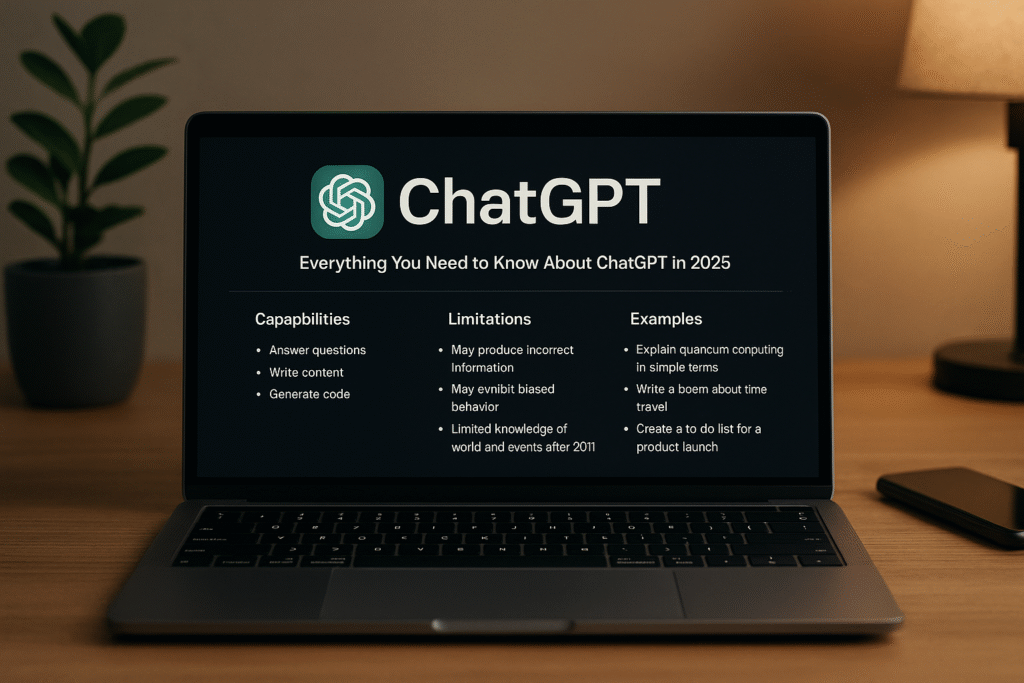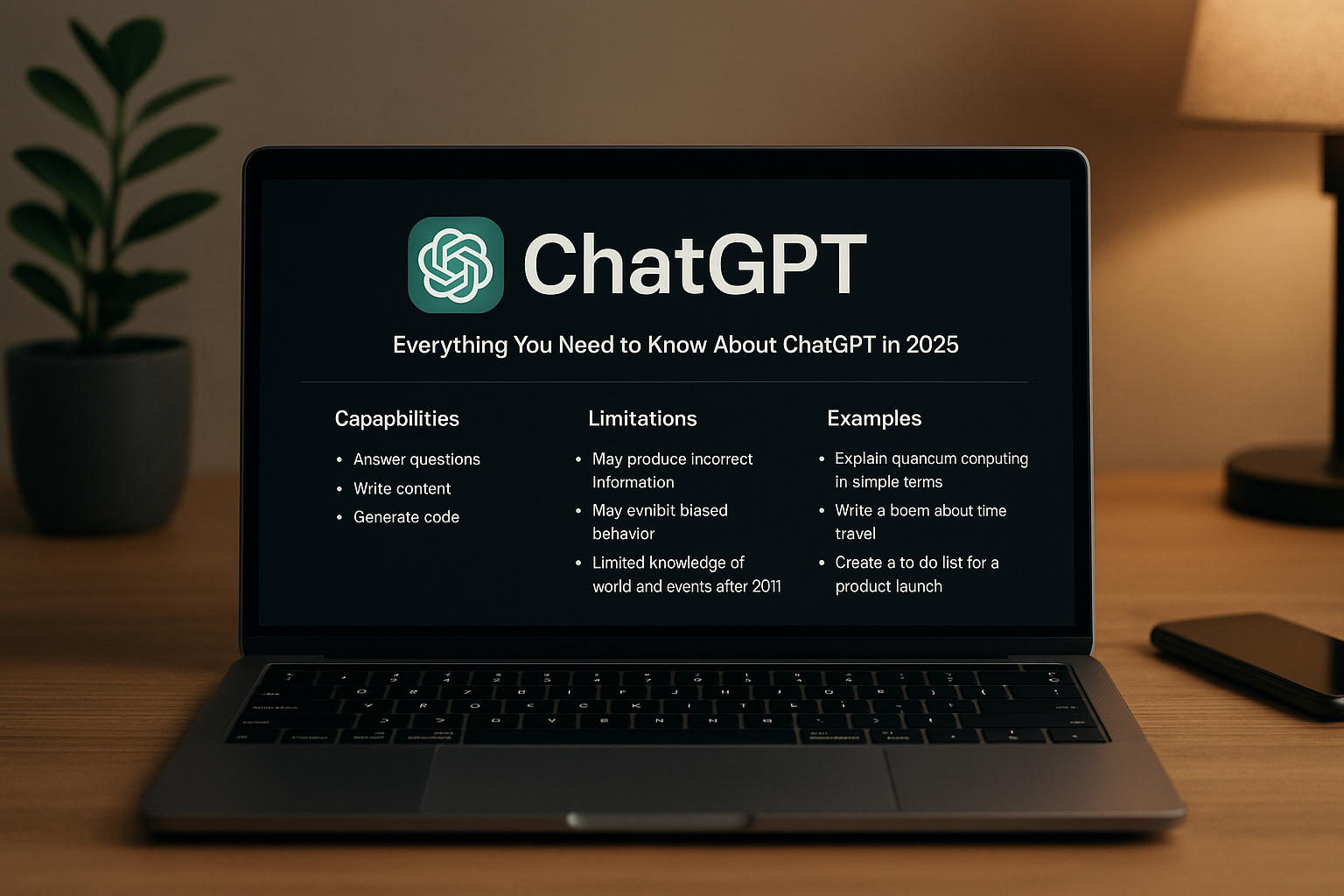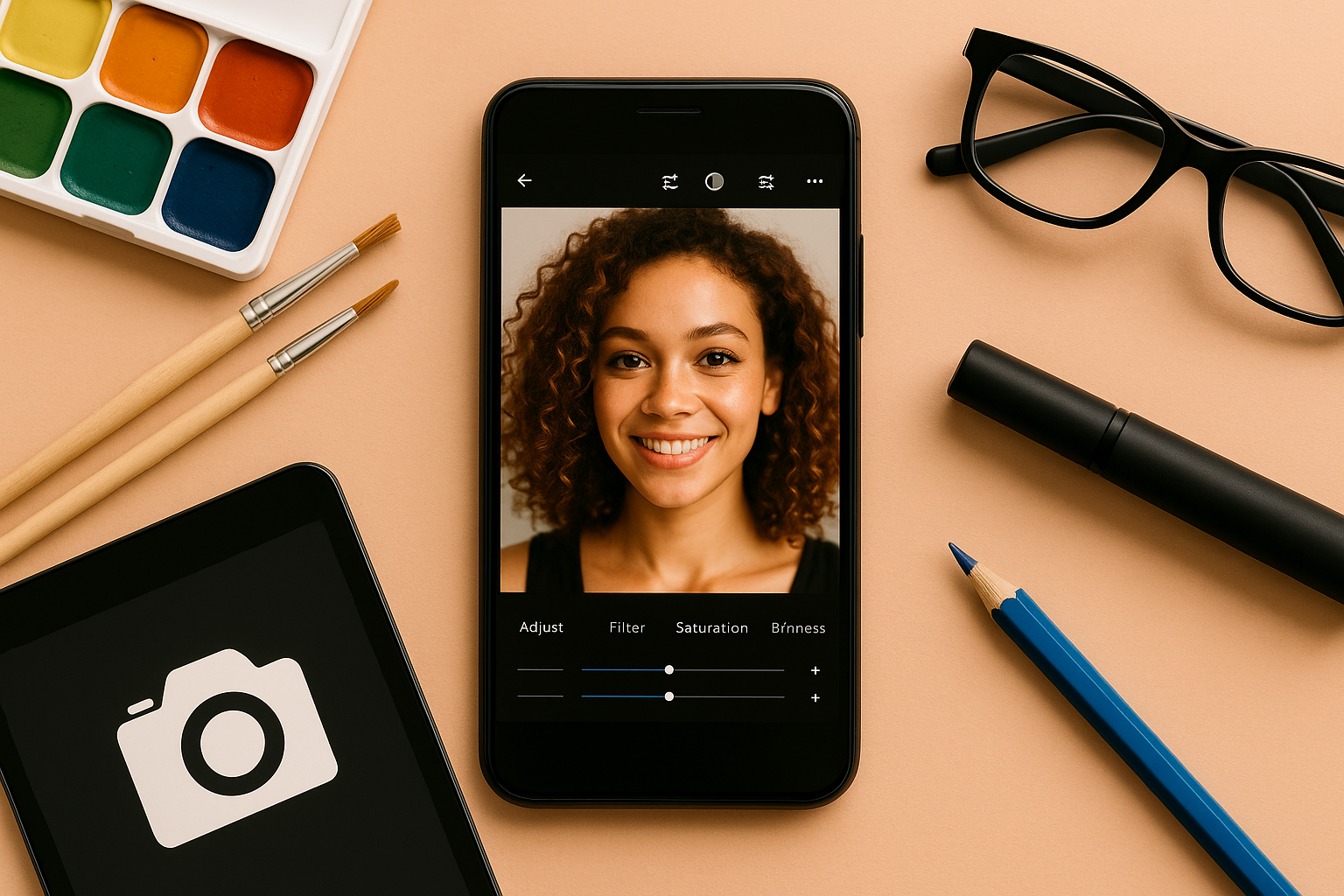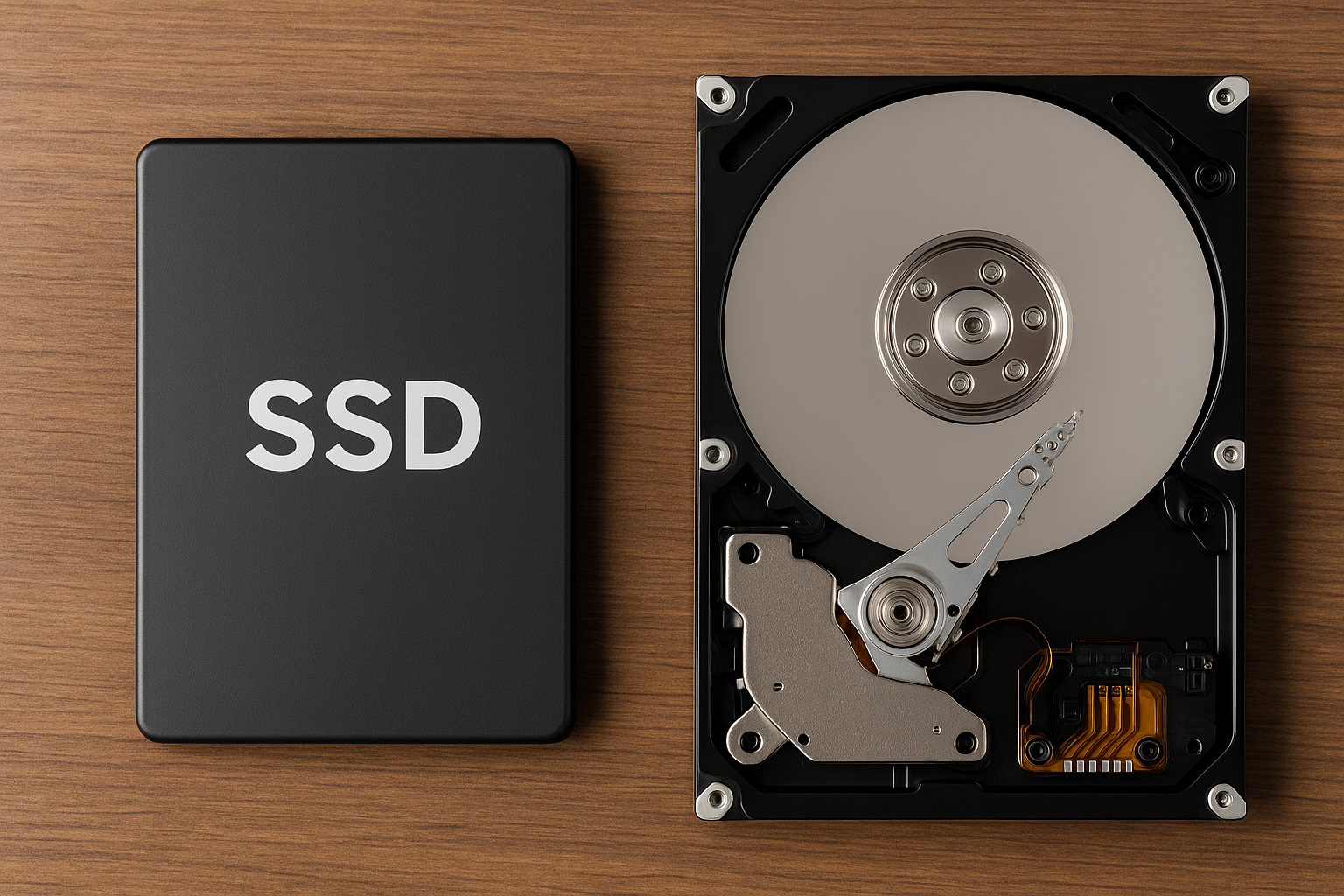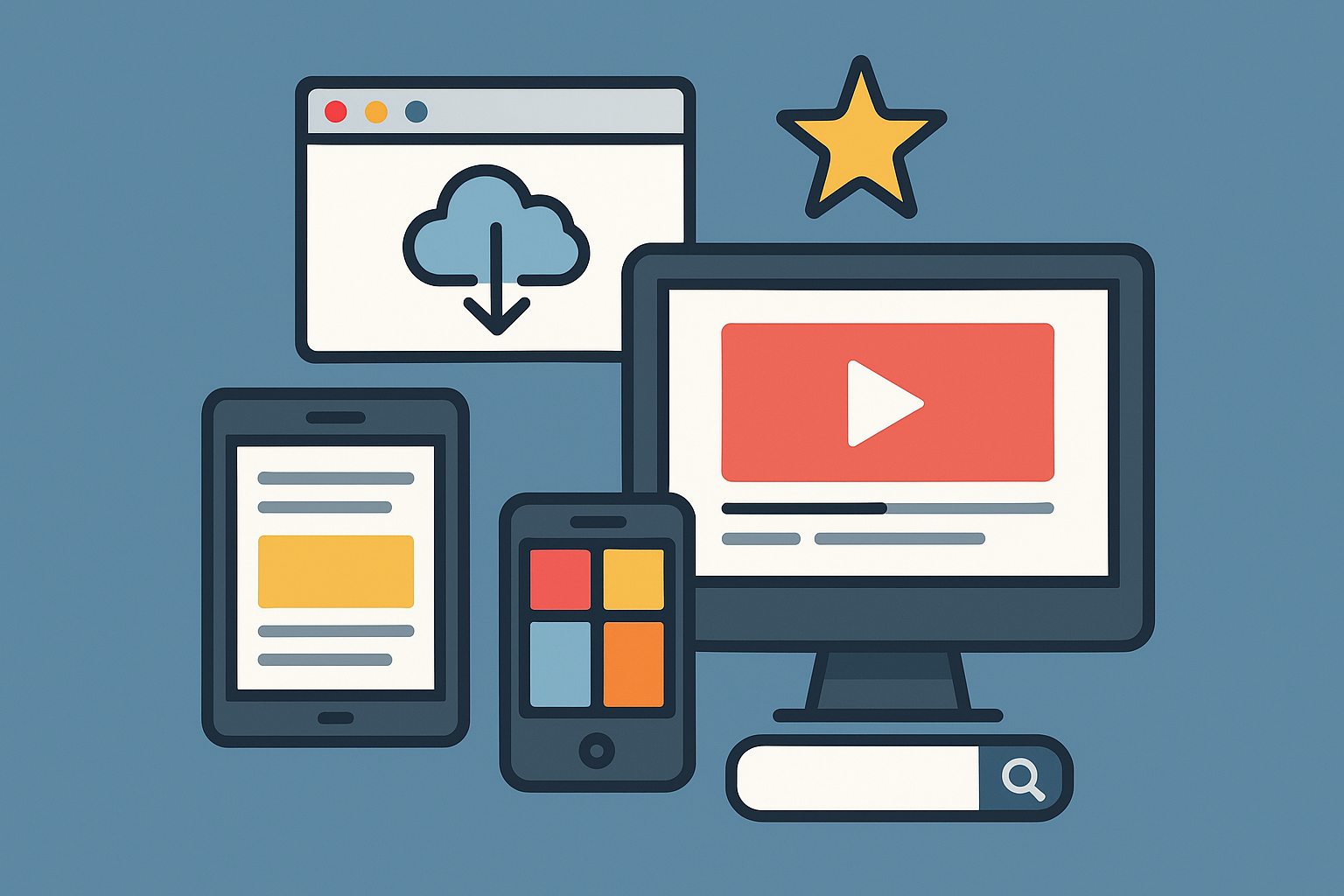In recent years, artificial intelligence has gone from a futuristic concept to a part of everyday life — and few technologies have had as much impact as ChatGPT. Originally launched by OpenAI, ChatGPT has evolved into one of the most powerful and widely used AI tools in the world. In 2025, it’s not just a chatbot — it’s a digital assistant, tutor, creative partner, and productivity tool used by millions.
But what exactly is ChatGPT? How does it work? And what can you do with it today?
In this guide, we’ll cover everything you need to know about ChatGPT in 2025 — whether you’re a beginner or a curious user looking to unlock its full potential.
What Is ChatGPT?
ChatGPT is a conversational AI model developed by OpenAI. It’s based on a type of machine learning architecture called a large language model (LLM), trained on massive amounts of text data to understand and generate human-like language.
The model can:
- Answer questions
- Write content (emails, essays, poems, code, etc.)
- Translate languages
- Summarize texts
- Solve math problems
- Simulate conversation
As of 2025, ChatGPT is used not only in chat form but also embedded in productivity tools, apps, customer service platforms, browsers, and even operating systems.
A Quick Timeline of ChatGPT’s Evolution
2022 – GPT-3.5:
ChatGPT goes viral as an easy-to-use AI chatbot. It shows impressive fluency and reasoning for its time.
2023 – GPT-4:
Significant upgrades to logic, understanding, and creativity. More accurate, nuanced responses.
2024 – GPT-4 Turbo and Multimodal Abilities:
OpenAI introduces GPT-4 Turbo, offering better performance and lower cost. The model becomes multimodal, meaning it can process text, code, and images.
2025 – GPT-4o (“Omni”)
A new architecture that allows real-time audio, vision, and text processing. ChatGPT becomes a full-fledged AI assistant — faster, smarter, and more context-aware.
Key Features of ChatGPT in 2025
1. Text + Image + Voice Interaction (Multimodal)
You can now:
- Upload an image and ask questions about it
- Speak directly to ChatGPT and get verbal responses
- Mix input modes (e.g., describe a photo and get a written caption)
This makes ChatGPT ideal for tasks like:
- Explaining graphs
- Reading menus in foreign languages
- Assisting visually impaired users
- Interpreting screenshots or documents
2. GPT-4o Performance
The GPT-4o model brings:
- Faster response times
- More natural conversations
- Better handling of emotional tone and user intent
- Enhanced contextual memory
It’s designed to feel more human, without losing its accuracy or professionalism.
3. Custom GPTs
With a few clicks, users can now create their own custom GPTs tailored for specific tasks — like customer support bots, educational tutors, or brand assistants — without needing to code.
You can:
- Upload custom instructions and knowledge
- Personalize tone and style
- Share or keep your GPT private
Great for businesses, freelancers, and creators.
4. Integration with Tools
ChatGPT now integrates with tools like:
- Python for code execution and data analysis
- Browser for real-time internet access
- File Handling (PDFs, CSVs, etc.) for reading and analyzing content
- DALL·E for generating images from prompts or editing existing visuals
You can ask it to:
- Create reports from spreadsheets
- Generate images for blog posts
- Summarize PDFs
- Search the web for up-to-date info
5. Memory and Personalization
In 2025, ChatGPT can now remember key facts about you between sessions (only if you allow it). This includes:
- Your name or business
- Your preferences (writing style, tone)
- Frequently discussed topics
- Tools you often use
This feature allows for more personalized, context-aware interactions — like picking up a project where you left off.
What Can You Use ChatGPT For?
Content Creation
- Blog articles
- Social media posts
- Product descriptions
- Emails and newsletters
- Ebooks and guides
Learning and Studying
- Explaining complex topics in simple terms
- Creating study notes or flashcards
- Practicing foreign languages
- Solving math or science problems step-by-step
Coding and Development
- Debugging code
- Writing functions in multiple languages
- Understanding API documentation
- Generating HTML/CSS pages
Business and Productivity
- Writing proposals and pitch decks
- Automating reports and analysis
- Drafting contracts or terms
- Creating business plans
Everyday Life
- Meal planning
- Travel itineraries
- Resume writing
- Mental wellness journaling
The possibilities are growing daily.
ChatGPT Free vs Paid (ChatGPT Plus)
ChatGPT is available in two main tiers:
Free Plan (GPT-3.5):
- Text only
- Slower response time
- No access to advanced tools or memory
ChatGPT Plus ($20/month):
- Access to GPT-4o (faster, smarter)
- Use of tools (browser, code, images, files)
- Multimodal support (text, voice, image)
- Memory and personalization
- Priority access during peak times
If you’re a power user, the Plus plan is well worth the upgrade.
Is ChatGPT Safe?
ChatGPT is designed with multiple safety layers, including:
- Refusal to engage in harmful or illegal activities
- Content filtering
- Transparency in limitations
- User privacy protections
OpenAI also provides:
- A “Report” button for unsafe or inaccurate responses
- Strict memory controls — you can delete or disable memory anytime
- Tools to manage what custom GPTs can access
Still, users should:
- Double-check important facts
- Avoid sharing sensitive personal or financial information
- Be aware that no AI is perfect
Limitations and Criticisms
Despite its power, ChatGPT has some known limitations:
- Can “hallucinate” or give incorrect answers confidently
- Doesn’t always understand sarcasm or humor
- May repeat generic phrases if prompts are vague
- Can’t replace human judgment in critical tasks
It’s a tool, not a human. Used wisely, it’s a game-changer.
Final Thoughts: The Future of AI Is Already Here
ChatGPT in 2025 is no longer just an experiment — it’s a practical, versatile assistant that helps people learn, work, create, and communicate more efficiently.
Whether you’re writing a novel, building a business, solving equations, or just trying to be more productive, ChatGPT has something to offer.
And with continuous updates, deeper integration, and more control in the hands of users, this AI is evolving rapidly — not to replace humans, but to empower them.
